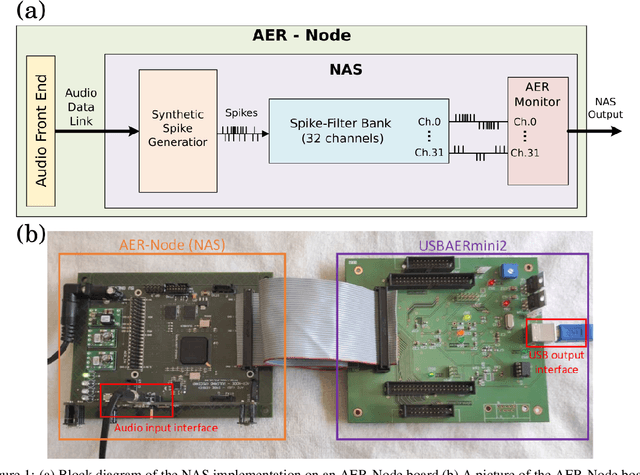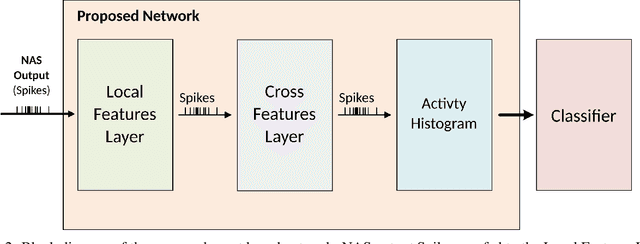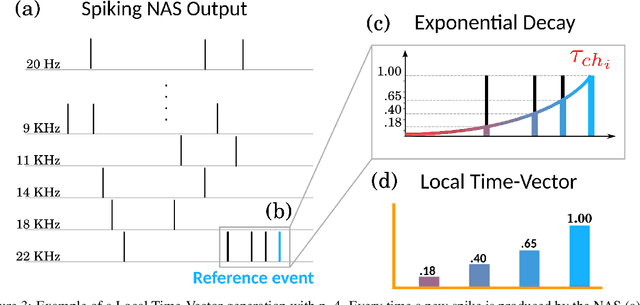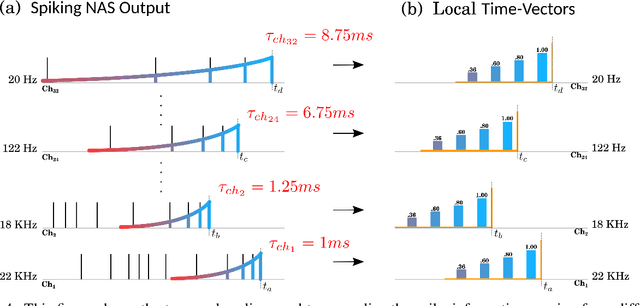Event Based Time-Vectors for auditory features extraction: a neuromorphic approach for low power audio recognition
Paper and Code
Dec 13, 2021



In recent years tremendous efforts have been done to advance the state of the art for Natural Language Processing (NLP) and audio recognition. However, these efforts often translated in increased power consumption and memory requirements for bigger and more complex models. These solutions falls short of the constraints of IoT devices which need low power, low memory efficient computation, and therefore they fail to meet the growing demand of efficient edge computing. Neuromorphic systems have proved to be excellent candidates for low-power low-latency computation in a multitude of applications. For this reason we present a neuromorphic architecture, capable of unsupervised auditory feature recognition. We then validate the network on a subset of Google's Speech Commands dataset.
 Add to Chrome
Add to Chrome Add to Firefox
Add to Firefox Add to Edge
Add to Edge